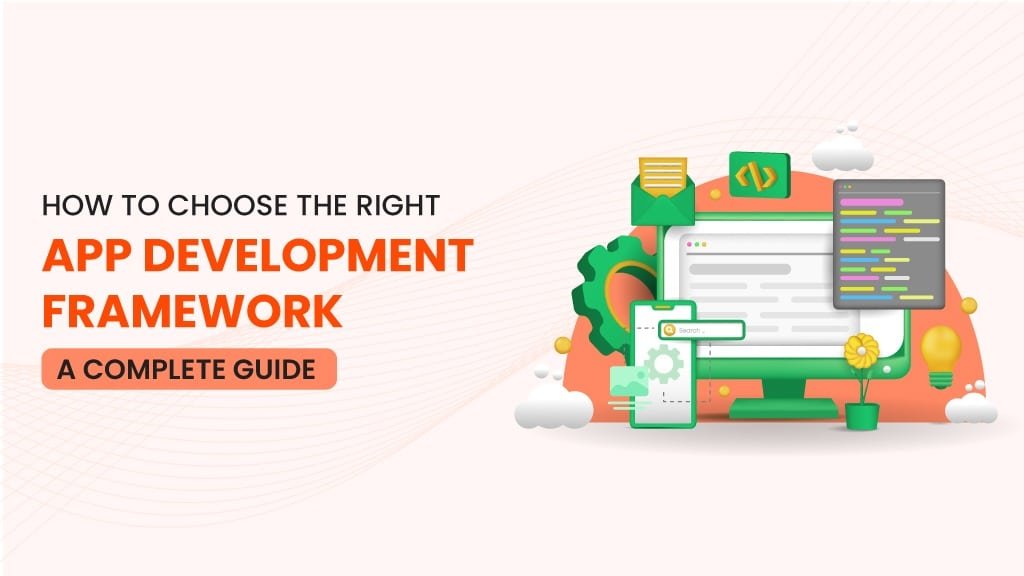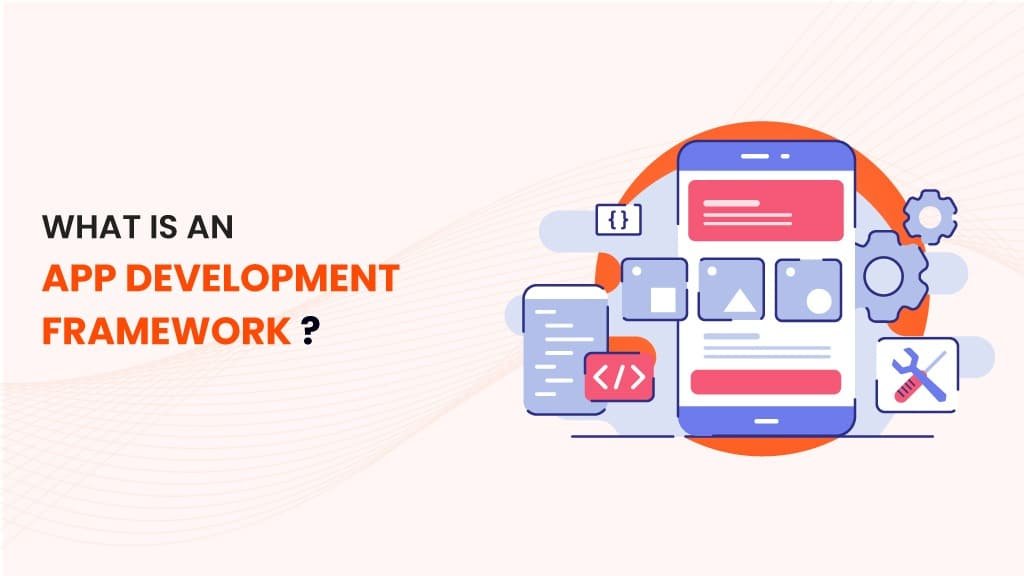
Selecting the right app development framework is a crucial decision that affects your app’s performance, scalability, and long-term success. Whether you’re a business owner, developer, or entrepreneur, understanding how to choose the right app development framework will ensure that your project meets its functional and financial goals.
With a wide variety of best mobile app development frameworks available, it’s essential to evaluate them based on factors like performance, cost, and ease of use. This guide explores different frameworks, their pros and cons, and provides recommendations based on various use cases.
What is an App Development Framework?

An app development framework is a structured platform that provides developers with the necessary tools, libraries, and guidelines to streamline the app creation process. Instead of building applications from scratch, developers can leverage these frameworks to access pre-written code, user interface components, and platform-specific functionalities. This not only accelerates development but also ensures consistency and reliability across different devices and operating systems.
Modern frameworks support various programming languages and offer built-in features like APIs, debugging tools, and third-party integrations, making them essential for both mobile and web app development. Whether a developer is working on a native, hybrid, or cross-platform application, choosing the right framework can significantly impact performance, scalability, and user experience.
Difference Between SDKs, Frameworks, and Libraries
Understanding the distinction between SDKs, frameworks, and libraries is crucial when selecting the right development approach:
- SDK (Software Development Kit): An SDK is a comprehensive package that includes all the tools required for app development. It typically contains frameworks, compilers, debuggers, documentation, and emulators. For example, Apple’s iOS SDK and Android SDK provide essential resources to build apps for their respective platforms.
- Framework: A framework offers a structured development environment with reusable components, predefined architecture, and built-in functionalities. Developers follow a specific structure to build applications without having to manage every aspect from scratch. Examples include Flutter, React Native, and Xamarin.
- Library: A library is a collection of pre-written code or functions that can be integrated into an app to perform specific tasks. Unlike frameworks, libraries do not enforce a rigid structure but instead provide additional features that developers can use as needed. Examples include jQuery for JavaScript and TensorFlow for machine learning applications.
Types of App Development Frameworks
Understanding the different types of frameworks will help you determine which framework is best for mobile app development based on your specific needs.
Native Frameworks
Native frameworks are designed for a specific platform, ensuring high performance and seamless user experience.
- Swift (iOS) & Kotlin (Android)
- Pros: Superior performance, direct access to device features.
- Cons: Higher development costs, platform dependency.
Cross-Platform Frameworks
Cross-platform frameworks enable developers to write a single codebase for multiple platforms.
- React Native, Flutter, Xamarin
- Pros: Faster development, cost-effective.
- Cons: Performance trade-offs, limited access to native features.
Hybrid Frameworks
Hybrid frameworks use web technologies (HTML, CSS, JavaScript) to create mobile apps.
- Ionic, Cordova
- Pros: Budget-friendly, quick deployment.
- Cons: Slower performance, limited UI capabilities.
How to Choose the Right App Development Framework ?
Selecting the best framework for your app requires evaluating various factors that impact performance, cost, scalability, security, and usability. Here’s a closer look at the key considerations:
- Performance & Speed
For apps that demand high performance, native frameworks like Swift (iOS) and Kotlin (Android) are often the preferred choice. They are optimized for their respective platforms, ensuring smooth functionality, fast response times, and seamless user experiences. However, modern cross-platform frameworks like Flutter and React Native have significantly improved their speed and efficiency, providing near-native performance while offering the advantage of a single codebase.
- Cost & Development Time
The cost of using different app development frameworks largely depends on project complexity. Native frameworks require developers to write separate codebases for iOS and Android, which increases development costs and time. On the other hand, cross-platform frameworks like React Native and Flutter allow developers to write a single codebase that runs on multiple platforms, reducing both development time and expenses.
- Scalability & Future-Proofing
When planning for long-term growth, choosing a framework with a strong ecosystem and active community support is essential. Frameworks like React Native and Flutter continue to evolve, offering extensive libraries, third-party integrations, and frequent updates, making them excellent choices for scalable applications.
- Security & Compliance
Security plays a vital role in app development, especially for applications handling sensitive user data. Native frameworks often provide better security measures as they integrate directly with platform-specific security features. Hybrid frameworks, while flexible, may require additional security protocols to meet compliance standards.
- Ease of Use & Learning Curve
For beginners and developers looking for ease of adoption, frameworks like Flutter and React Native stand out. They offer extensive documentation, large support communities, and a wealth of learning resources, making them more accessible than native frameworks that require specialized knowledge in platform-specific languages like Swift or Kotlin.
Best Frameworks Based on Use Cases
Different projects require different solutions. Here’s a breakdown of the best frameworks for iOS and Android apps based on various needs.
Startups & MVPs
- Best Choice: React Native, Flutter
- Why? Cost-effective, quick development cycle, strong community support.
Enterprise Apps
AI/ML & Blockchain Apps
- Best Choice: TensorFlow for AI, Hyperledger for Blockchain
- Why? Advanced computational capabilities, industry-grade security.
Future Trends in App Development Frameworks
The world of app development is evolving. Staying ahead of trends can help developers and businesses make informed decisions.
Will Flutter Dominate Mobile App Development?
Flutter is gaining momentum due to its single-codebase efficiency and rich UI features. Many experts predict it could replace React Native in the near future.
The Rise of AI-Powered Development Tools
Artificial intelligence is revolutionizing app development, enabling automation and smarter decision-making in frameworks like TensorFlow.
The Impact of 5G & Cloud-Based Frameworks
Faster internet speeds and cloud computing advancements are shaping future frameworks, making them more powerful and efficient.
The Bottom Line
Selecting the right framework is crucial for app success. Whether you’re building a small startup app or a high-performance enterprise solution, understanding how to choose the right app development framework is key to making the right choice.
If you’re unsure about which framework suits your project best, AdzEye can help. Our team of expert developers specializes in creating scalable, high-performance apps tailored to your business needs.
Contact us today for a free consultation and take the first step toward building a successful mobile app!


